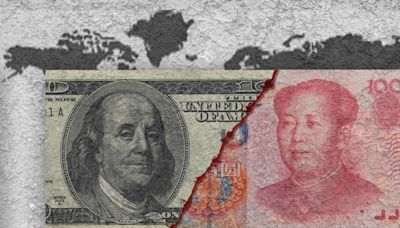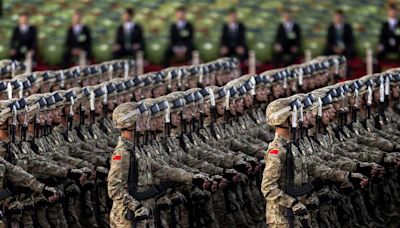Find Cheap Flights to Beijing by Comparing 500+ Airlines. Price Match Promise. Flying to Beijing? Search & Compare Low Airfares on 500+ Airlines. Book and Save Now!
- Round Trip Cheap Flights
Grab Great Flights Deals
Price Match Promise.
- Domestic Cheap Flights
Save On Your Domestic Flights.
Fly at Our Low Possible Prices.
- Fly International Cheap
Save with Our Low Fares
Book Now, Travel Later.
- Cheap Spring Season Deals
Search and Save on Flights
Fast, Easy, & Secure Bookings.
- Round Trip Cheap Flights
save70.com has been visited by 100K+ users in the past month
Best Flight Deals? Exclusive Fares on Round Trip, One Way & Multi-Stop Flights. Book Now. -70% Beijing from Your City. Last Min Price Drops. 2024 Special Fares. Book Now!
beijing.online-reservations.com has been visited by 1M+ users in the past month
(Beijing, China) The Peninsula Beijing. Online Hotel Reservations for 2024. We compare hotels with balconies, views, pools, restaurants & more.
Search results
Beijing, [a] alternatively romanized as Peking, [b] is the capital of China. With more than 22 million residents, [9] Beijing is the world's most populous national capital city as well as China's second largest city after Shanghai. [10] It is located in Northern China, and is governed as a municipality under the direct administration of the ...
- Overview
- Character of the city
The residents of Beijing speak a dialect of Mandarin Chinese that forms the basis of Modern Standard Chinese (Guoyu), or putonghua (“common language”), which is commonly taught throughout the country.
What UNESCO World Heritage site is found at the heart of Beijing?
The Forbidden City is an imperial palace complex at the heart of Beijing, designated a UNESCO World Heritage site in 1987 in recognition of its importance not only as the centre of Chinese power for five centuries but also for its unparalleled architecture and adherence to the practice of feng shui.
What is the former name of Beijing?
The former name of Beijing is Beiping (Pei-p’ing; “Northern Peace”). The third Ming emperor gave it the new name of Beijing (“Northern Capital”) during the 15th century.
How long has Beijing been the capital of China?
Although much of Beijing’s older and more picturesque character has been destroyed in the drive since 1949 to modernize and industrialize, some parts of the city are still redolent of the past. Many fine monumental buildings, old restaurants, and centres of traditional Chinese arts and crafts remain, and the central government has taken measures to prevent the city core from being further industrialized. Broad new boulevards, replete with even newer commercial ventures, have displaced the colourful stalls and markets for which the city was once famous, but the neighbourhood life of old Beijing can still be glimpsed in the narrow hutongs (residential alleys), with their tiny potted-plant gardens, enclosed courtyards, and (decreasingly) coal-burning stoves—some of which are still guarded by carved stone lions at their gates.
Britannica Quiz
Asian Capitals Quiz
People in Beijing commute by subway, bus, automobile, or bicycle and on hot summer evenings sit outside their apartment blocks to catch cooling breezes and to chat. The citizenry has a wide range of leisure pursuits, particularly those considered good for health. The ancient art of tai chi chuan (taijuquan; Chinese boxing) is widely practiced, singly or in groups, along roadsides and in parks. Locals as well as tourists are attracted to the many nearby historical sites, such as the Summer Palace, the tombs of the Ming emperors, and the Great Wall. Older people, especially the men, like to huddle in tiny restaurants and tea shops. Young people are drawn to the city’s many cafés and nightclubs, where the entertainment can range from DJ-run dance music to Chinese rock bands.
For all the vicissitudes of its history, Beijing continues to be a source of great pride for its inhabitants. Their obsessions are, as they have been for centuries, food and knowledge: they eat heartily when they have the means and read voraciously. Food stalls on the streets, selling a variety of cooked treats, are well patronized, as are newspaper and magazine kiosks. The ambition of most families is to provide their offspring with a higher education or, if not that, a good job.
Special offer for students! Check out our special academic rate and excel this spring semester!
Learn about Beijing, the capital of China and a major cultural and historical center. Find out its location, climate, transportation, districts, events, and top attractions such as the Great Wall, the Forbidden City, and the hutongs.
- Get lost in Beijing's hutong alleyways. Beijing's highly wander-able matrix of residential lanes has been shrinking for decades, but despite the demolitions, it's still possible to lose yourself in neighborhoods that time (almost) forgot, where old folks play xiangqi (Chinese chess), walk their songbirds and haggle over a few jin of persimmons from a handcart seller.
- Eat jianbing for breakfast (every single day) Take one giant crepe-style pancake, crack an egg or two on top, lather on some furu (fermented bean curd) and chili sauce, sprinkle with cilantro and scallions, fold around a shatteringly crisp sheet of fried dough… and eat!
- Go on a "wild" Great Wall hike. Seeing the Great Wall in its naturally eroded state, snaking away over the ridgelines of mountains with trees erupting from buckled watchtowers, is a sight more fantastical than anything the Game of Thrones art department could dream up.
- Delve deeper into the Forbidden City. Most visitors to Beijing's UNESCO-listed centerpiece focus their energies on the Three Great Halls and parade grounds that comprise the outer court, and they are indeed awe-inspiring.
Explore Beijing's ancient and modern attractions, from the Forbidden City and Temple of Heaven to Tian'anmen Square and 798 Art District. Find tips on the best things to do, day trips, food, culture and more in this comprehensive guide.
- DictionaryBeijing/beɪˈdʒɪŋ/
- 1. the capital of China, in the north-east of the country; population 8,580,400 (est. 2006). Beijing became the country's capital in 1421, at the start of the Ming period, and survived as the capital of the Republic of China after the revolution of 1912.
Powered by Oxford Dictionaries
Apr 16, 2024 · Learn about Beijing's history, culture, and attractions, from the Great Wall and Forbidden City to Tiananmen Square and hutongs. Find out how to plan your trip, where to stay, what to eat, and what to do in this comprehensive guide.
Explore the best of Beijing's culture, history and nature with Lonely Planet's guide to the city's top sights. From the Forbidden City and Temple of Heaven to the 798 Art District and Ming Tombs, discover Beijing's diverse attractions.
Compare the Best Offers and Book in a Few Clicks. Choose Your Flight, Go to the Payment Page, Add Prime and the Discount Will Be Applied
- www.tripsinsider.com/2024-Promo/Cheap-Airfare
Ad2024 Super Cheap Flight Deals - 70% Off Cheap Flights
tripsinsider.com has been visited by 100K+ users in the past month
Best Flight Deals? Exclusive Fares on 2024 Spring Break and Winter Flights. Book Now. 2024 Flight Deals. Find Last Minute Unsold Fares Up to -70%. Compare & Book Today Online!




